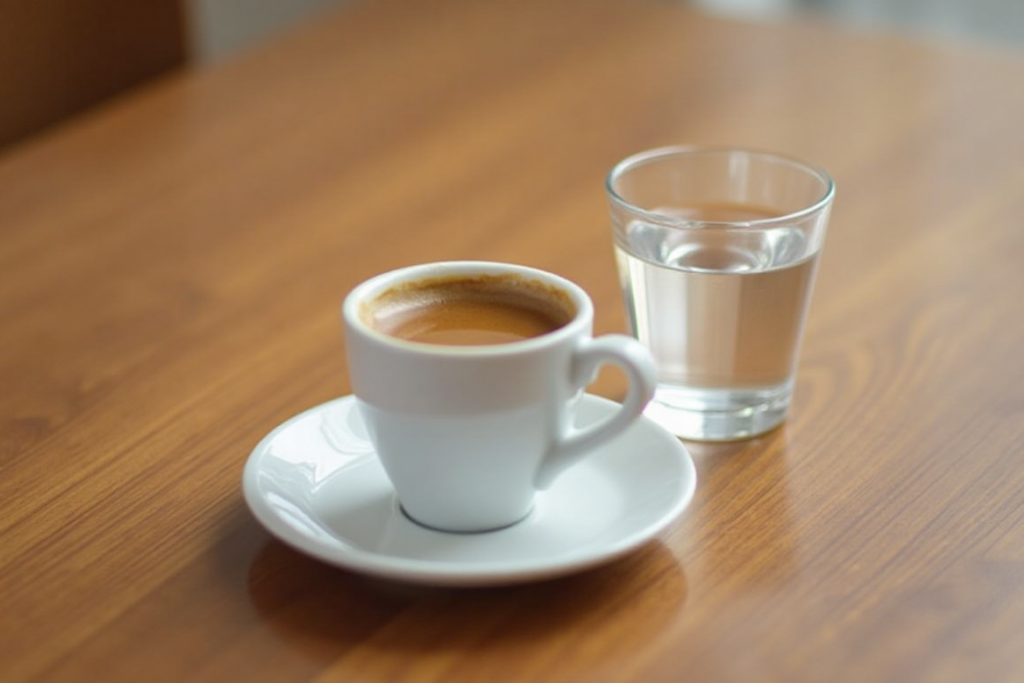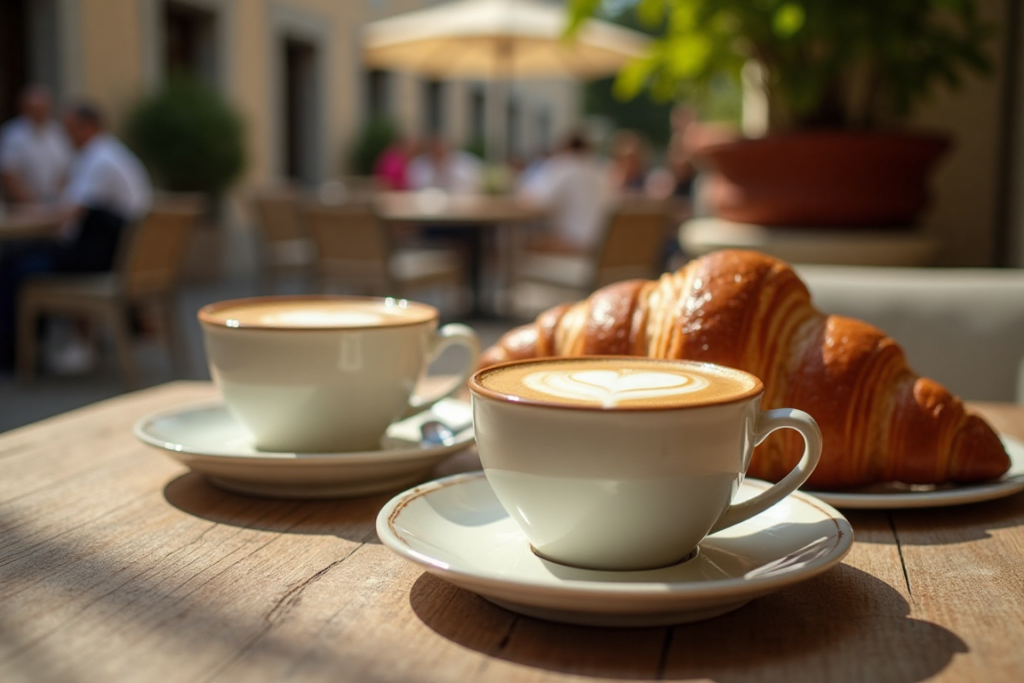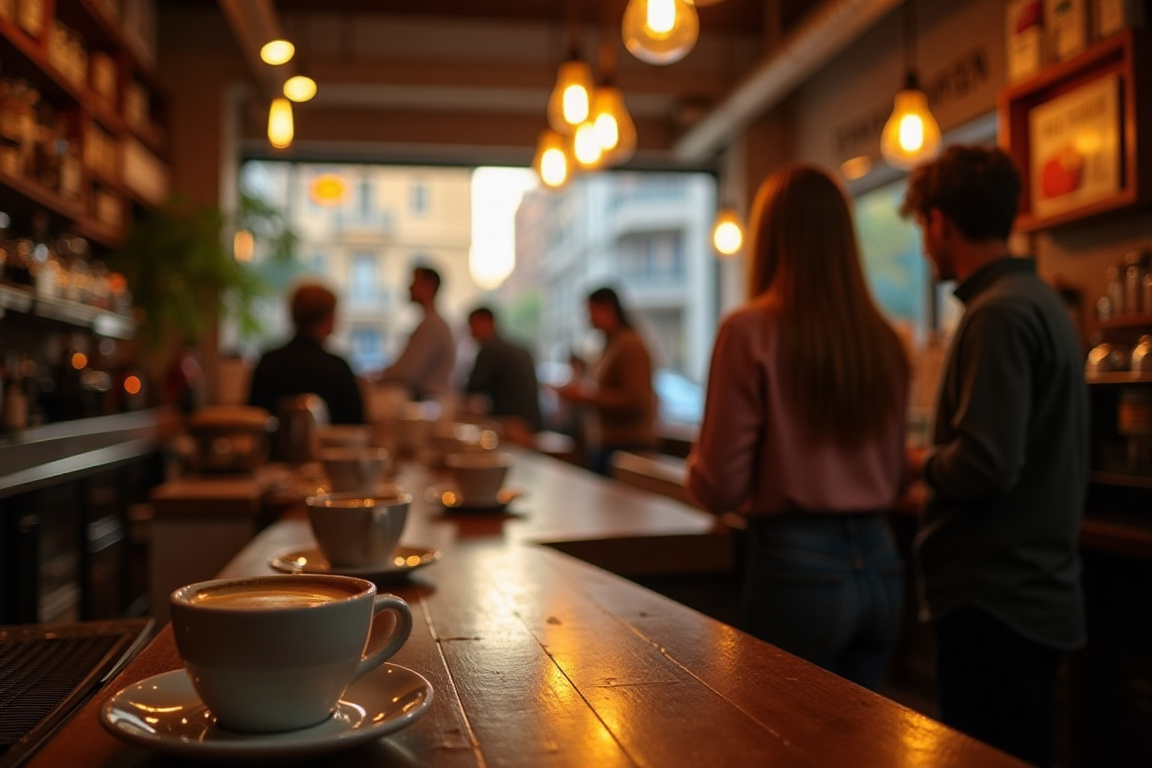Italy is world-renowned for its rich coffee culture, from the perfectly brewed espresso to the frothy cappuccino. However, there’s more to enjoying coffee in Italy than simply ordering your favorite cup. Italians adhere to a set of unwritten rules surrounding coffee consumption, and understanding these guidelines can help you blend in seamlessly with the locals. Among these rules, knowing when not to drink coffee is as important as knowing what to order.
This guide will delve into the specific cultural norms that dictate the times and situations where ordering coffee might be frowned upon, ensuring you enjoy your Italian coffee experience the right way.
Coffee Culture in Italy
Coffee in Italy isn’t just a beverage; it’s a way of life. Italians approach coffee with a sense of tradition and ritual, and understanding these practices is key to appreciating their rich culture.
The Importance of Coffee in Daily Life
In Italy, coffee serves as a social glue, a quick pick-me-up, and a moment of joy. Espresso bars dot every corner, acting as hubs for friends to catch up, professionals to recharge, and families to share stories. Each visit is often brief—Italians rarely linger in coffee shops for hours.
Coffee as a Reflection of Identity
The type of coffee you drink, the time you drink it, and how you consume it reflect your awareness of Italian culture. For instance, ordering a cappuccino in the afternoon is a classic mistake that immediately marks a tourist. Italians value their traditions, and adhering to these customs is seen as a sign of respect.
Morning Rituals: Cappuccino Only
Why Cappuccinos Are Strictly for the Morning
In Italy, milk-based coffee drinks like cappuccinos, lattes, or macchiatos are seen as breakfast beverages. They’re consumed to provide sustenance and energy for the day ahead, often paired with a pastry like a cornetto. Drinking these after breakfast is seen as indulgent or even unhealthy because of the heavy milk content, which Italians believe can hinder digestion.
Social Norms Around Milk-Based Coffee
Ordering a cappuccino after 11:00 AM might raise an eyebrow or two. While baristas in tourist-heavy areas might oblige your request, traditional Italians stick to espresso or other non-milk-based options post-morning. This isn’t about being inflexible but about preserving an ingrained way of life.

Avoid Coffee After Meals
Digestive Concerns and the Espresso Preference
In Italy, the end of a meal calls for something small and powerful: espresso. Italians believe that milk-based coffee disrupts digestion after a rich meal. Instead, a shot of espresso provides the perfect post-meal palate cleanser and energy boost without feeling heavy.
Alternatives Like Digestive Liqueurs
For those who want something other than coffee after a meal, Italians often turn to digestivi, such as limoncello, grappa, or amaro. These liqueurs aid digestion and are considered a more appropriate choice than a cappuccino or latte at this time.
No Coffee in the Evening
Impact of Caffeine on Sleep Habits
Italians are known for their love of espresso, but even they recognize the limits of caffeine consumption. Drinking coffee late in the evening, especially after 5:00 PM, is generally avoided. Caffeine’s stimulating effects can interfere with sleep, and Italians value their nightly rest as much as their daily espresso rituals.
While you might find locals enjoying a post-dinner espresso, this is typically reserved for those who have built a tolerance for caffeine over years of consumption. If you’re not accustomed to late-night coffee, it’s wise to skip it.
Acceptable Alternatives Like Herbal Teas
Instead of coffee, many Italians opt for herbal teas or chamomile in the evening. These soothing drinks help the body wind down, aligning with the slower pace of Italian nightlife. Another popular option is a small glass of amaro or limoncello to cap off the day in a relaxing, digestion-friendly manner.
Situational Faux Pas
Avoiding Coffee During Business Meetings
Coffee is deeply embedded in Italian social life, but its place in professional settings is limited. During formal business meetings, coffee is rarely served or consumed. Meetings are typically focused on the agenda at hand, and coffee breaks may occur before or after the discussion but not during.
If you’re invited for coffee in a professional context, it’s often a sign that the meeting has transitioned to a more casual tone or that you’re being welcomed into a more personal connection with your Italian colleagues.
Coffee Etiquette at Religious or Solemn Events
It’s also important to consider context when drinking coffee. Consuming coffee during religious ceremonies, funerals, or other solemn occasions is considered inappropriate. While a quick espresso before or after such events might be fine, drinking coffee during them could be seen as disrespectful.
Understanding Regional Variations
How Coffee Customs Vary Across Italy
Italy’s coffee culture, while uniform in many respects, does show some regional variations. For example, in Northern Italy, you might find larger coffee drinks, while Southern Italy is home to more concentrated, intensely flavored coffee. These regional quirks can sometimes lead to exceptions to the rules, particularly in areas with a strong influx of international tourists. Exceptions in Tourist-Heavy AreasIn cities like Rome, Venice, or Florence, many coffee bars cater to tourists, offering cappuccinos and lattes at any time of day. While this flexibility might make it easier for visitors, it’s worth noting that locals often avoid these establishments in favor of more traditional bars that adhere to authentic customs.
The Role of Coffee in Italian Social Life
Coffee as a Conversation Starter
For Italians, coffee represents a cherished tradition and a cornerstone of daily life. it’s a reason to connect. Whether it’s a quick “Caffè?” with a friend or an impromptu meeting at a bar, coffee acts as a pretext for social interaction. Italians often share news, exchange stories, or discuss daily events over a short espresso.
The Etiquette of Standing vs. Sitting
Italians often drink their coffee standing at the bar, a habit tied to efficiency and cost. Coffee consumed at the counter is usually cheaper than at a table. Sitting down for coffee, especially in tourist-heavy cities, often comes with a service charge. Understanding these subtle differences ensures you experience coffee as locals do.
Coffee and Generational Bonding
Coffee rituals also play a role in bridging generational gaps. Families often gather for coffee, particularly on weekends or during celebrations. Grandparents may teach younger family members about the art of brewing the perfect moka pot coffee, passing down traditions that emphasize respect for the craft.
Myths and Misconceptions About Italian Coffee
“Espresso” vs. “Caffè”
One common misconception is that “espresso” is the go-to term in Italy. In reality, Italians simply call it “caffè.” If you ask for an espresso, you might still get what you want, but it’s not the word locals typically use.
The Strength of Italian Coffee
Another myth is that Italian coffee is much stronger than coffee elsewhere. While espresso is concentrated, the serving size is smaller, which often means the total caffeine content is less than in a standard cup of American coffee.
Coffee in Italian Homes
Many believe Italians exclusively drink coffee at bars. While bars are central to coffee culture, brewing coffee at home is just as important. The moka pot is a household staple, used to create a rich, flavorful coffee that serves as a morning or midday ritual for families.
Historical Roots of Italian Coffee Culture
The Arrival of Coffee in Italy
Coffee first arrived in Italy during the 16th century, primarily through Venetian trade routes. Venice, a thriving port city, became one of the first European hubs to embrace this fascinating and unfamiliar beverage. Initially, some associated coffee with foreign mysticism, but its unique flavor and energizing qualities soon made it a cherished part of Italian life.
The Rise of the Italian Coffee Bar
The first coffee houses in Italy appeared in Venice in the late 1600s. These establishments were not only places to enjoy coffee but also hubs of intellectual and political discourse. Over time, the Italian coffee bar evolved into a more casual and accessible experience, becoming a cornerstone of everyday life.
The Birth of the Espresso Machine
Italy’s deep connection to coffee grew stronger with the invention of the espresso machine in the late 19th century. Companies like La Pavoni and later, Gaggia, revolutionized coffee-making, allowing baristas to prepare a concentrated shot of coffee quickly and consistently. This innovation cemented Italy’s reputation as a leader in coffee culture.
The Evolution of Coffee Culture in Italy
How Modern Trends Are Influencing Tradition
In recent years, Italian coffee culture has begun to evolve. Specialty coffee shops offering alternative brewing methods like cold brew or pour-over are emerging in major cities. While these innovations appeal to younger generations, traditional espresso remains the backbone of Italian coffee culture.
Sustainability and Ethical Sourcing
As global awareness around sustainability grows, many Italian coffee producers are focusing on ethically sourced beans and environmentally friendly practices. This shift reflects a modern twist on an age-old tradition, ensuring coffee culture continues to thrive responsibly.
Tourists and Their Influence
Tourists have also played a role in shaping Italian coffee culture. While traditional bars maintain their authentic approach, some establishments now cater to international preferences, offering larger drink sizes or accommodating requests for non-dairy milk—changes once unheard of in traditional settings.
Essential Dos and Don’ts of Italian Coffee Culture
Dos for Enjoying Coffee in Italy
- Do drink coffee at the bar: Join the locals for a quick coffee standing at the counter. It’s more authentic and affordable.
- Do follow the clock: Stick to cappuccino in the morning and espresso for the rest of the day to align with Italian customs.
- Do learn the menu: Familiarize yourself with options like macchiato (espresso with a splash of milk) or ristretto (a shorter, more intense espresso).
Don’ts to Avoid Coffee Faux Pas
- Don’t order coffee to go: The Italian coffee experience is about being present, so the concept of takeaway coffee is rare and often frowned upon.
- Don’t linger too long: Italians treat coffee as a quick ritual, not an all-day affair. Lingering at the bar may disrupt the flow.
- Don’t expect flavored syrups: Traditional Italian coffee culture focuses on simplicity, so elaborate lattes or flavored drinks are uncommon.
The Art of Brewing Coffee at Home in Italy
Mastering the Moka Pot
The moka pot, invented by Alfonso Bialetti in 1933, is a symbol of Italian coffee culture at home. This stovetop espresso maker is cherished for its simplicity and ability to produce a strong, aromatic coffee. Learning to use one is essential for those wanting to embrace the Italian coffee tradition.
Selecting the Perfect Coffee Blend
Italians are meticulous about their coffee blends. The most popular choices are medium to dark roasts with a balanced flavor profile. Brands like Lavazza and Illy dominate the market, but regional and artisanal roasters also have a loyal following.
The Role of Coffee in Italian Hospitality
When hosting guests, Italians often offer coffee as a gesture of welcome. Preparing coffee at home is seen as an act of care, and the quality of the coffee served reflects the host’s attention to detail.

FAQs
Is it ever okay to drink a cappuccino in the afternoon in Italy?
While not traditionally acceptable, some coffee bars in tourist areas may serve cappuccinos in the afternoon. However, if you’re looking to blend in with locals, stick to espresso after breakfast.
What should I order instead of coffee in the evening?
Opt for herbal teas like chamomile or a small glass of amaro. These alternatives are soothing and digestion-friendly, making them ideal for evening consumption.
Can I drink coffee with my meal?
It’s uncommon to Enjoy coffee during a meal in Italy. Instead, save your coffee for after you’ve finished eating, typically as an espresso.
Why do Italians avoid milk-based coffee after 11:00 AM?
Italians believe that milk-based drinks like cappuccinos or lattes can disrupt digestion, especially after a heavy meal. These drinks are seen as breakfast-only beverages.
Are there regional exceptions to Italian coffee etiquette?
Yes, some regions, particularly those with high tourist traffic, might be more lenient with coffee rules. However, locals in smaller towns tend to stick to traditional customs.
How can I avoid looking like a tourist when ordering coffee in Italy?
Stick to espresso or macchiato after breakfast, and avoid ordering coffee during meals or in the evening. Observing local customs will help you blend in.
Conclusion
Italy’s coffee culture offers a uniquely delightful experience, steeped in tradition and etiquette. To fully embrace it, understanding the unspoken rules is essential. Whether it means forgoing a cappuccino after 11:00 AM, choosing espresso over coffee with milk after meals, or opting for herbal tea in the evening, these small adjustments demonstrate respect for local customs and deepen your cultural connection. By adhering to these practices, you can enjoy Italian coffee not just as a drink, but as a treasured part of the country’s heritage.

